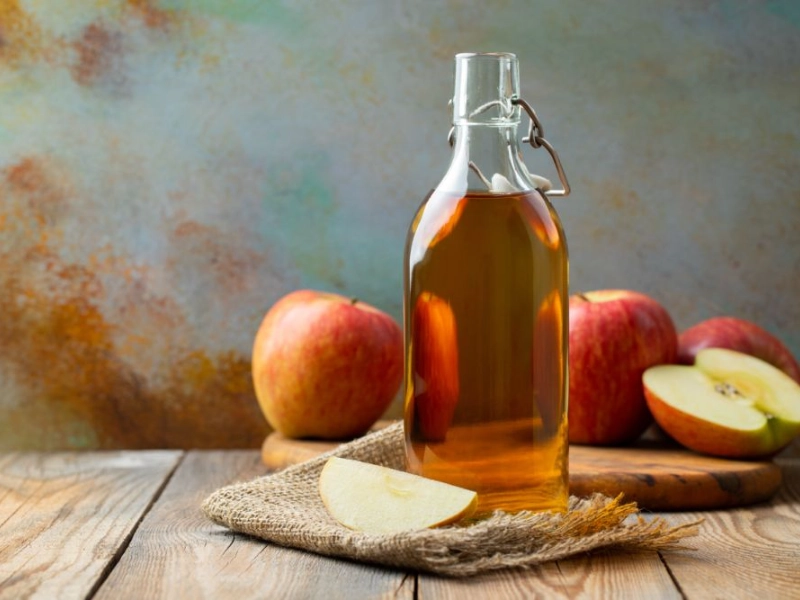Advertisement
11. Vinegar: A Tangy and Versatile Caper Substitute

Advertisement
In many different culinary uses, vinegar—in all its forms—offers itself as a conveniently available and somewhat flexible replacement for capers. Although vinegar lacks the precise taste sensation and texture of capers, it can quite replicate the sour, acidic notes that capers add to a recipe. When capers are not available or when a dish calls for a different flavour depth, this makes it a great substitute.
Vinegar's acidity helps to give the sharp, acidic notes that capers are known for, so acting as a caper alternative. But vinegar is far more acidic than capers and lacks the briny, somewhat salty taste that capers have. Therefore, substituting vinegar for a caper usually calls for some further tweaks to get the dish's taste balance.
Because of their softer, more complex flavours, white wine vinegar and champagne vinegar are frequently the best options for a vinegar to use as a caper alternative. Without adding too strong tastes, these kinds of vinegar provide a neat, crisp acidity that can quite match the tanginess of capers. Especially in recipes with fruit components, apple cider vinegar can also be an excellent choice since its minor fruity undertones provide a new depth to the flavour profile.
Starting roughly half the quantity of vinegar as you would capers can help you to use vinegar as a caper replacement. For a recipe calling one tablespoon of capers, for instance, start with half a tablespoon of vinegar. The particular needs of the food and personal taste preferences will help one to modify this ratio.
But just substituting vinegar for capers could provide a too one-dimensional or harsh taste sensation. Add other ingredients to balance the taste and produce a more intricate replacement. A little sugar can assist to offset the acidity and replicate the somewhat sweet undertones of capers. Including a little salt will help to recreate capers' saline taste. Finely chopped herbs like parsley, dill, or thyme can provide depth and complexity to the replacement, so enhancing the even more subtle taste.
Particularly in sauces, dressings, and marinades, vinegar shines as a caper alternative in many kinds of cuisine. White wine vinegar, for example, can supply the required acidity in a piccata sauce to balance the brightness of lemon and cut through the richness of butter. Vinegar can readily replace capers in salad dressings since it provides a crisp, acidic taste that accentuates the whole flavour character.
Vinegar's adaptability is one of its benefits as a caper replacement. Subtle flavour changes made possible by different kinds of vinegar let one express inventiveness in the cooking. For meals that usually call for capers, balsamic vinegar—while not a straight replacement—can provide a rich sweetness and acidity, therefore providing a fresh take on well-known recipes.
Although vinegar may fairly approximate the sour taste of capers, it cannot match their texture or appearance. To give a comparable sensory element in meals where the texture of capers is crucial, think about including finely chopped pickles, green olives, or even nasturtium seeds.
Consider the general acidity of the dish when substituting vinegar for a caper. Since vinegar is more strong than capers, you might have to cut other acidic components in the dish to keep harmony. Taste as you go always, then change the seasoning.
In essence, vinegar can be a good substitute for capers when used sensibly even if it might not be the ideal one in every context. In the kitchen, its tangy taste character, great availability, and adaptability make it an invaluable choice. Cooks can make a caper alternative that gives the required acidity and depth to their culinary works by mixing vinegar with complimentary components and varying amounts to fit the meal.
